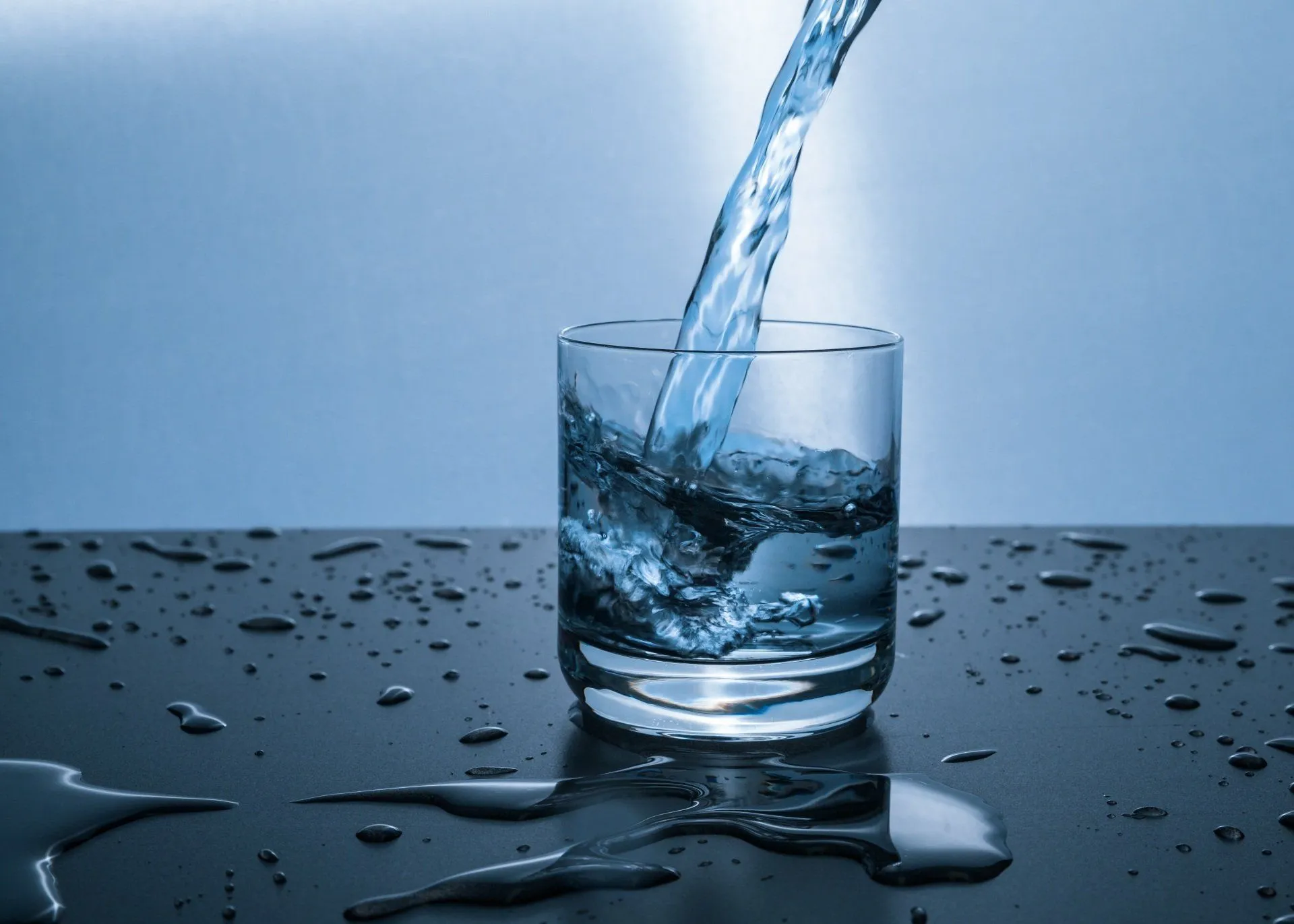Why Hydration is Supes Important…
Why Hydration Matters: Benefits of Drinking Enough Water
Water is necessary for life, as we can go weeks without food, but only a few days without it! Approximately 60% of your body weight is water and it helps with various functions such as regulating your body temperature, transporting nutrients and oxygen, lubricating your joints, removing waste products, and maintaining your blood pressure.
So, just how much water do you need to drink every day? What happens if you don’t drink enough water? In this post, we will explore the importance of staying hydrated and how hydration (or dehydration) affects your health.
How Much Water Do You Need?
How much water you need depends on several factors, such as your age, gender, activity level, climate, and any health issues that you may have. According to the U.S. National Academies of Sciences, Engineering, and Medicine, the general recommendation is to drink about 15.5 cups (3.7 liters) of fluids for men and about 11.5 cups (2.7 liters) of fluids for women per day. This includes water and other beverages, as well as water from food sources-it is important to note that some foods contain more water than others.
This recommendation however is not set in stone. You may need more or less water depending on your individual circumstances-think more roller coaster, less carousel. For example, if you exercise intensely, sweat a lot, have a fever, diarrhea, or vomiting, you may need to drink more water to replace the fluid loss-these factors can move to the forefront or the back of the line depending on the day.
Flipside of the coin, if you have a medical condition that causes fluid retention, such as congestive heart failure or kidney disease, you may need to limit your fluid intake. This brings me to my next point, this blog is for educational purposes only, and in no way shape or form takes the place or supersedes the advice of your (or a) physician or other health care practitioner that is involved directly with your care.
A good way to figure out your hydration status is to pay attention to your thirst and urine color. If you feel thirsty, unfortunately you are probably already in some stage of dehydration. In that case, drink water until you are satisfied. If your urine is dark yellow or amber-think iced-tea color-it also means you are dehydrated and need to drink more water. If your urine is clear or pale yellow, it means you are well hydrated-nice job!
What Are the Benefits of Drinking Enough Water?
Staying hydrated by drinking plenty of water can have many positive effects on your health and well-being. Some of the benefits of staying hydrated are:
- It boosts your energy and mood. Water helps your brain function properly and affects your mood and cognition. Dehydration can impair your memory, attention, and reaction time. It can also make you feel tired, irritable, and depressed. Drinking plenty of water will keep you alert, focused, and you may even feel happy-the people around you will thank you!
- It supports your digestion and metabolism. Water helps your digestive system break down the food you eat and helps to absorb nutrients. It also helps prevent constipation by softening your stool and stimulating bowel movement. Drinking enough water may also speed up your metabolism and help you burn more calories.
- It protects your organs and tissues. Water can act as a cushion as well as lubricate your joints, eyes, mouth, nose, and skin. It also helps regulate your body temperature by evaporating sweat from your skin’s surface. Drinking plenty of water can prevent injuries, infections, dryness, and overheating.
- It flushes out toxins and waste products. Water helps your kidneys filter out waste and toxins from your blood. It also helps your liver detox harmful substances from your body. Drinking enough water can prevent kidney stones, urinary tract infections, and liver damage.
What Are the Risks of Not Drinking Enough Water?
When we don’t drink enough water there can be serious consequences for our health and well-being. Here are some of the risks of dehydration:
- It increases your risk of illness and disease. Dehydration can weaken your immune system and make you more susceptible to infections and diseases. It can not only increase your risk of developing chronic conditions such as diabetes, hypertension, kidney disease, and stroke-but may also worsen the effects of such conditions if an ailing person becomes dehydrated.
- It impairs your physical and mental performance. Dehydration has the potential to reduce your blood volume and subsequently, oxygen delivery to your muscles and brain. It can also cause electrolyte imbalance and muscle cramps that in turn, may affect your physical endurance, strength, coordination, and balance. Dehydration can also impair your cognitive abilities such as memory, attention, concentration, and decision making.
- It affects your appearance and quality of life. Dehydration can potentially dry your skin, cause hair loss, you can develop wrinkles, acne, bad breath, and dental issues. It can also cause headache, dizziness, fatigue, mood swings, worsen anxiety and depression. All of which can affect your self-esteem, confidence, and happiness.
How to Stay Hydrated?
Staying hydrated is not difficult if you follow some simple tips:
- Drink water throughout the day. Do not wait until you are thirsty to drink as thirst is a sign that you are already dehydrated. Try to drink water regularly throughout the day. You can use a reusable water bottle or a glass to keep track of how much water you drink. You can also set reminders on your phone or computer to drink water at certain intervals.
- Drink water before, during, and after exercise. Exercise increases your fluid loss through sweating and breathing. You should drink water before, during, and after exercise to replenish the fluid loss and prevent dehydration. The American College of Sports Medicine recommends drinking 16 to 20 ounces (0.5 to 0.6 liters) of water at least four hours before exercise, 8 to 12 ounces (0.2 to 0.3 liters) of water 10 to 15 minutes before exercise, and 3 to 8 ounces (0.1 to 0.2 liters) of water every 15 to 20 minutes during exercise. You should also drink water after exercise to replace the fluid and electrolytes lost through sweat.
- Drink water when you are sick. Illnesses such as fever, diarrhea, vomiting, and infections can cause fluid loss and dehydration. You should drink more water when you are sick to prevent dehydration and help your body fight off the illness. Pedialyte is great to replenish electrolytes!
- Drink water with meals and snacks. Drinking water with meals and snacks will help you stay hydrated and also help your digestion and metabolism chugging along. Water can also help you feel full and prevent overeating. However, avoid drinking too much water during meals as it can dilute your stomach acid and interfere with digestion. A good rule of thumb is to drink one 8-ounce glass of water with each meal and snack.
- Drink other fluids and eat water-rich foods. Water is not the only source of hydration. You can also drink other fluids such as milk, juice, tea, coffee, and soup that contain water and other nutrients. However, be careful with beverages that contain caffeine, alcohol, or sugar as they can have a diuretic effect and cause dehydration. You can also eat water-rich foods such as fruits, vegetables, and smoothies that can provide you with water and other vitamins, minerals, and antioxidants.
Conclusion
Your physical and mental health depend on enough hydration. Getting enough water into your body has numerous positive effects, including an increase in energy and mood, support for digestion and metabolism, protection of your organs and tissues, removal of toxins and waste products, and protection against sickness and illness. Lack of water consumption can have negative effects on your health and wellbeing, including decreased physical and mental function, an increased risk of illness and disease, and changes to your appearance and general quality of life.
Water should be consumed often throughout the day to stay hydrated, particularly before, during, and after physical activity, while you are ill, and with meals and snacks. Other beverages and meals high in water can help hydrate you and give you additional nutrients.
Remember: hydration matters! Drink up!

